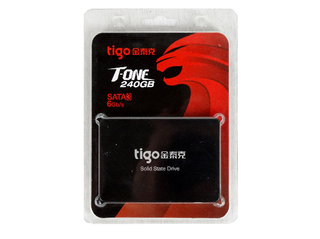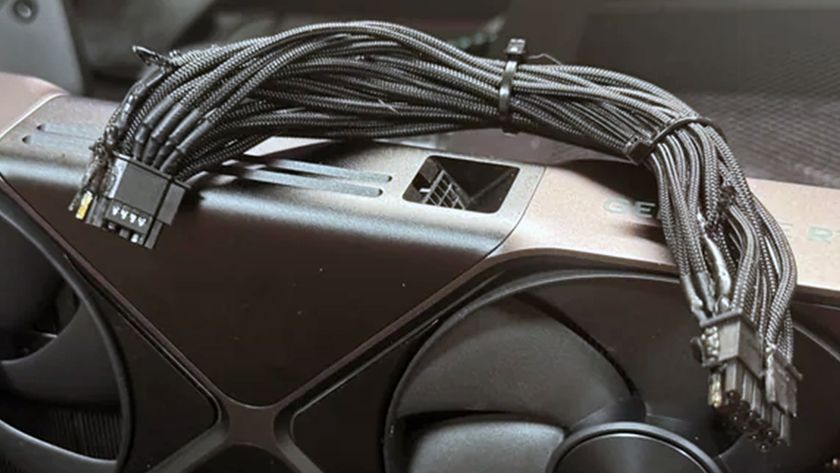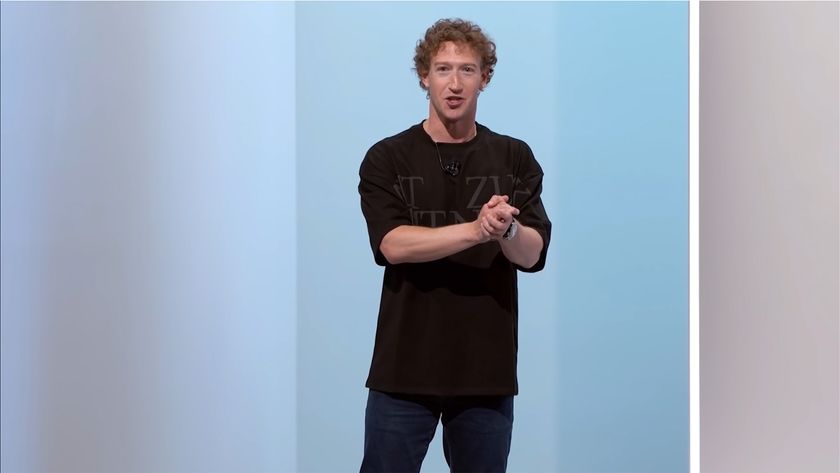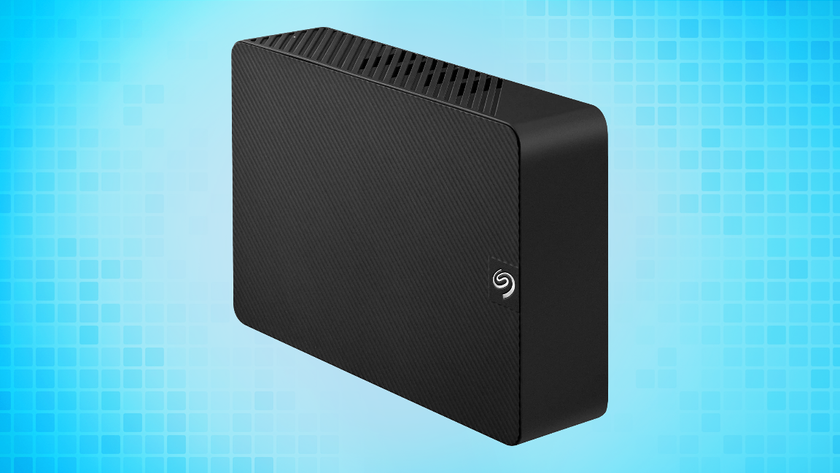Tigo T-One 240GB Low Cost SSD Review
Why you can trust Tom's Hardware
Conclusion
We can draw two conclusions from this review. First, the prices of low-cost SSDs still haven't hit rock-bottom. Second, be wary of low-cost SSDs from companies you've never heard of.
You already know that more affordable solid-state storage is on the way. In fact, 256GB drives should drop to as low as $40 by the end of the year. The next drops will come from the introduction of 3D flash from Micron, SK hynix and Toshiba. Many of the low-cost TLC-based models available today are just placeholders. They're a way for manufacturers to keep their portfolios fresh as 3D R&D wraps up.

But a lot of those SSDs suffer from low sequential write speeds. They're fast enough for most mainstream users, but budget-conscious gamers and enthusiasts make up much of the market shopping for low-cost SSDs. We've only see two TLC-based drives successfully mask the native performance of triple-level-cell NAND: Samsung's 850 EVO and, more recently, MyDigitalSSD BP5e, which writes at 200 MB/s by taking the SLC to TLC fold operation out. Direct-to-die operations wear the flash out faster, but reduce by one-half the time it takes to install large applications. Storage vendors need to keep you from seeing TLC's native performance to make entry-level drives more broadly viable, and Tigo's 240GB T-One fails to do that.
With an oversupply of flash, we'll start seeing more SSDs from new brands, a majority coming from Asia. These drives are starting to hit the U.S. and European markets through Amazon, eBay and smaller specialty sites. What we found today is that they're not all built the same. Even though Silicon Motion's SM2256 processor has several design wins with companies like Adata, Crucial and SanDisk, that doesn't guarantee the same performance from off-brand products utilizing similar hardware. Granted, in most of our tests, Tigo's T-One performed a lot like Adata's 240GB SP550. It wasn't until we looked at notebook battery life that the T-One under-performed Adata's offering. Not everyone will drop a new SSD into a notebook of course, but without that benchmark, you'd never know that Adata's drive facilitates 71 more minutes away from the wall.
MORE: Best SSDs For The Money
MORE: Latest Storage News
MORE: Storage in the Forums
Stay On the Cutting Edge: Get the Tom's Hardware Newsletter
Get Tom's Hardware's best news and in-depth reviews, straight to your inbox.
-
James Mason Would have like to see a price to performance chart to compare all the ones tested.Reply -
darcotech The price of Samsung EVO 850 250Gb is 88.67USD not 149.99. And could be probably found even cheaper.Reply
Buying cheap SSD from non established company is big no for me. My data are on it, and I want to feel safe (even if I have backup). -
joex444 Even if you wanted to spend just $61 on a 240GB SSD, there are other options. PNY, AData, and Kingston all offer 240GB SSDs *lower* than $61. These are all companies that have been around for a good amount of time whereas Tigo is a completely unknown company from China, which tends to be a source of lower quality parts compared to S. Korea, Japan, or Taiwan.Reply -
shrapnel_indie Tektronix is an old U.S. company that still exists. I hope the opening statements were about when Tigo started and not them as Tektronix got its start in 1946.Reply
http://www.tek.com/about-us -
RobinEricsson > Tigo is a division of TektronixReply
Tektronix, as in the electronics test and measurement tool company (http://www.tek.com/ )? Are you sure about that?
It doesn't seem that computer memory and oscilloscopes are closely related. Plus the website of Tektronix's parent company, Danaher, doesn't list Tigo or its worldwide brand Kimtigo as one of the companies in its portfolio (http://www.danaher.com/our-businesses/business-directory ). -
captaincharisma its like every computer related company in the world is selling its own SSD drives nowReply -
mapesdhs I recently tested a Gloway SSD (a model eBay keeps pushing in its "other items like this" listings), easily one of the worst models I've ever come across, terrible write speeds. Definitely avoid.Reply -
rhysiam Your verdict seems a little scare-mongering and introduces a theme which (unless I've missed it) wasn't addressed anywhere else in the review" "you need to decide if losing data is worth the $20 you saved".Reply
What are you basing that on? Have you got data or theory or at least personal experience to back that up?
That line made me go and read the article, assuming I'd find a story of multiple failed drives during your testing process, but I can't see a single sentence about reliability or data retention in the article (correct me if I'm wrong!) You shouldn't really advise your readers to avoid a drive because it'll lose their data if you haven't actually addressed or supported that assertion in the article itself. -
CRamseyer Here is the deal with reliability. The big names in the industry do no cut corners. Samsung, Intel, Micron/Crucial, SK Hynix, Toshiba and SanDisk are the fab companies. They make the flash and they also get first pick when from the production. These companies also know about features in the memory to enable or disable to increase reliability, performance and so on. Most of the extra switches have to do with the ECC (linked to reliability).Reply
I kill SSDs all of the time. It happens so often that I don't even think about it when it happens. Many of the companies send me early drives to test with pre-release firmware. I would estimate that 2 our of every 5 die during testing. Retail products have a much higher success rate. I may kill one in every 60 or so. My testing goes well beyond what anyone would consider normal use so don't let the high percentage take away from buying a new SSD.
When a product review goes live that isn't the end of my testing. At any time I'm developing 3 to 5 new tests for consideration in SSD or NAS reviews. Every once in awhile you will see one of these tests in a regular review to show a corner case problem.
With that said, it's rare for a fab company SSD to fail. I'm not saying they never fail, just the rate is much lower than products from smaller companies. I have around 300 SSDs (maybe more) dating back to 2007 so we are not talking about a small sample size.
Last but not least, I've been in 4 test labs. Two of the companies were fab companies and two were not. The difference is night and day between what the big names in the industry do compared to what the smaller companies do.
That is not to say that I would never use SSDs from smaller companies. I do use them in my lab but when it comes to systems I keep valuable data on, I use fab company drives. -
wh3resmycar ocz trion 100 goes for like $50 here in the philippines (240gb). i use my ssd for games mainly and considering i have a 100MB connection i can afford to have a broken ssd and redownload my whole librabry in a couple of hours.Reply



